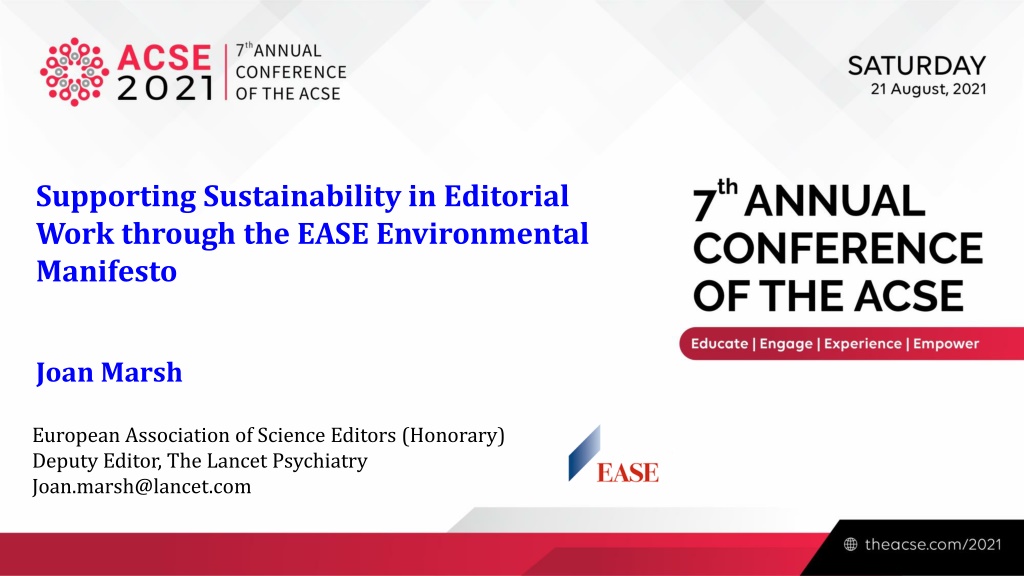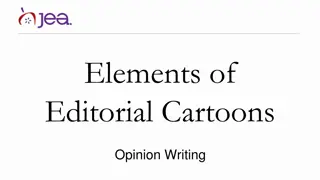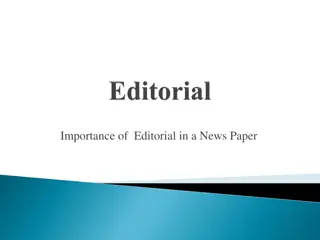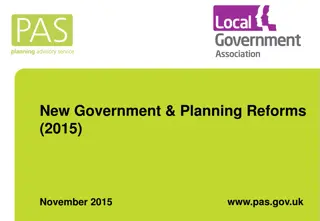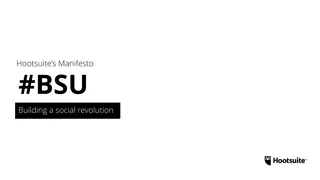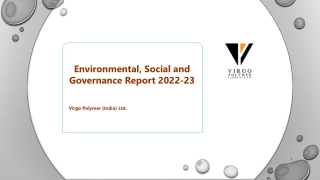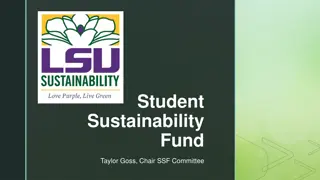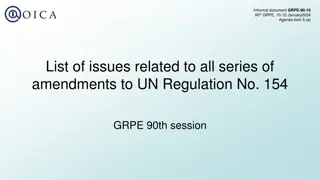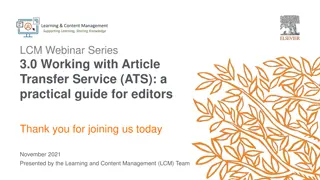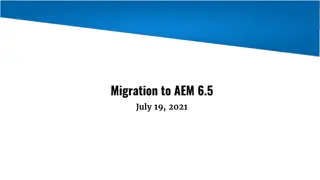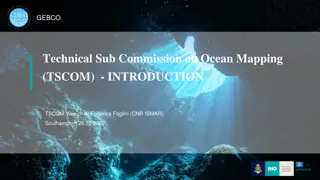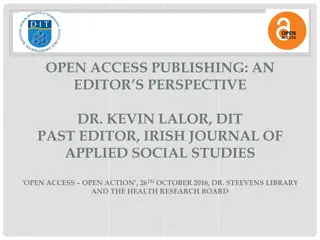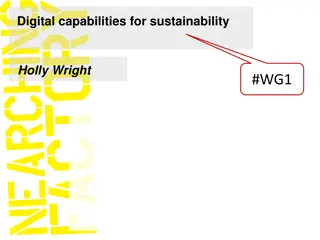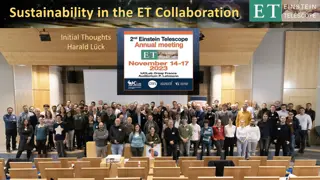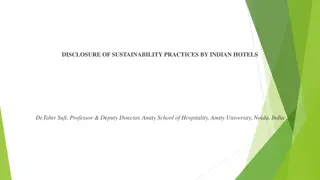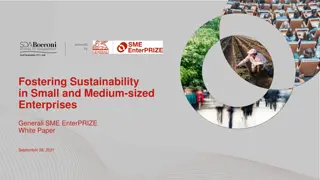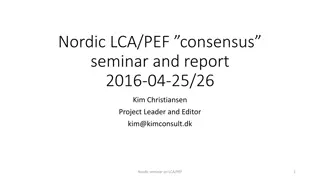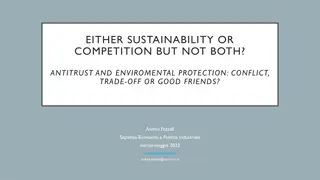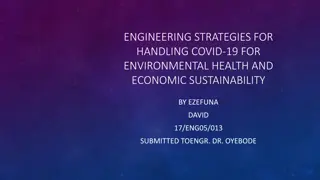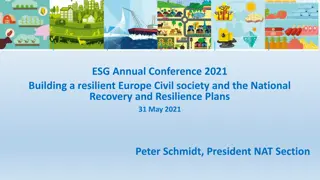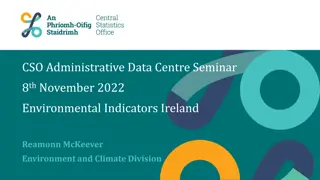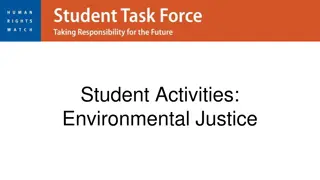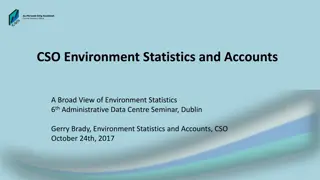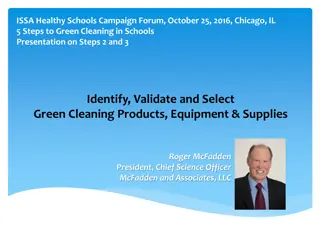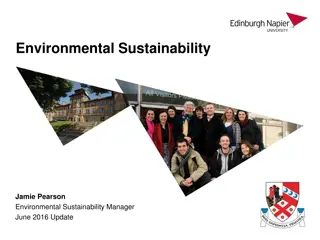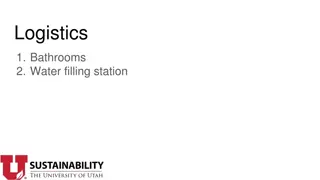Supporting Sustainability in Editorial Work: EASE Environmental Manifesto
Environmental sustainability in scientific publishing is highlighted through the EASE Environmental Manifesto, aiming to reduce the environmental impact of editorial activities. This manifesto encourages policies, digital transition, eco-friendly print distribution, and office management practices to support sustainability in editorial work.
Download Presentation

Please find below an Image/Link to download the presentation.
The content on the website is provided AS IS for your information and personal use only. It may not be sold, licensed, or shared on other websites without obtaining consent from the author. Download presentation by click this link. If you encounter any issues during the download, it is possible that the publisher has removed the file from their server.
E N D
Presentation Transcript
Supporting Sustainability in Editorial Work through the EASE Environmental Manifesto Joan Marsh European Association of Science Editors (Honorary) Deputy Editor, The Lancet Psychiatry Joan.marsh@lancet.com
Environmental sustainability and scientific publishing: a manifesto This manifesto was launched at the 15th EASE Conference on 23 June 2021. The European Association of Science Editors (EASE) is an international community of individuals and associations engaged in science communication and editing. The manifesto aims to support EASE members and the wider global community of editors in their efforts to reduce the environmental impact of their activities.
Environmental policy Organisations should have a written environmental policy. Each initiative, e.g. actions to reduce single-use plastic, or schemes to enable workers to work from home, should be monitored and its effectiveness evaluated. The policy should be reviewed regularly, with the goal of gradually improving environmental performance. Good practice should be communicated widely. EASE is a signatory to the UN SDG Publishers compact, a voluntary initiative, based on a ten step process, to support the UN sustainable development goals. https://www.un.org/sustainabledevelopment/sdg-publishers-compact/
Go digital Does your journal still have a print edition? If so, is it really necessary? If copies are printed for marketing purposes, can these be replaced by social media campaigns? Where print is required, use recycled paper or that marked FSC (Forest Stewardship Council). Many readers still print pdfs, so minimize borders and white space to reduce paper waste by readers.
Print journal distribution Avoid plastic wrappers and carrier sheets. Paper wrappers are readily recyclable. Potato starch wrappers are biodegradable but these materials compete with the cultivation of staples and should therefore not be used in large scale. Could your journal be distributed naked with address details printed on it directly. Talk to your printer about what is best for your needs.
Office management 1 Switch to an environmentally aware search engine provider, such as Ecosia https://en.wikipedia.org/wiki/Ecosia For appliances, such as printers and computers, use energy efficient devices which can be repaired and offer long lasting software support. Recycle printer cartridges, batteries and redundant computer equipment. Many office supplies outlets provide recycling services for these products. Consider restricting printing allocation to reduce unnecessary printing. Make recycling easy by providing plenty of bins, clearly labelled and regularly emptied. Reducing and reusing is always preferable to recycling.
Office management 2 Lighting consider: LED bulbs Lights that automatically turn off when no-one is in the room Not lighting buildings at night Encourage staff to turn off equipment before leaving the office. Use teleconferences for meetings whenever possible.
Food and drink Use and encourage the use of tap water, e.g. by installing water fountains. If non-tap water is deemed necessary, provide large collective water coolers. Encourage staff to bring their own reusable cups. Encourage the use of washable crockery and cutlery, rather than single-use paper or plastic plates and cutlery. Provide suitable washing up and storage facilities. Source locally produced and seasonal food to reduce food miles. Purchase predominantly plant-based food. If you wish to offer choice, make the higher impact options op-in rather than opt-out. Consider what happens to left-over food, eg sandwiches or fruit, so that waste can be reduced.
Employee management Encourage employees to use public transport, for example through interest-free loans or subsidies for rail season tickets. Provide cycle racks and changing/showering facilities for those cycling or running to work. Provide recharging facilities for e-bikes and e-cars. Encourage car sharing with colleagues. Consider flexible working hours and home working to reduce transport congestion and costs. Air travel has a particularly high carbon footprint. Employees should be encouraged to travel by train where possible, for example within a country or state. Consider whether to make such policies mandatory.
Actions specific to editors as gatekeepers Editors have a strong influence on the public discussion of science and are in a privileged position that allows them to advocate for high ethical and environmental standards in research and reporting. Editors should actively advocate for, and implement, strategies to promote environmentally sustainable behaviour and research in their respective fields. Invite articles that deal with the consequences of environmental change within their discipline Publishing special, themed issues that tackle aspects of sustainability. Challenge authors and researchers to consider the environmental implications of their workflows and research.
